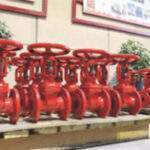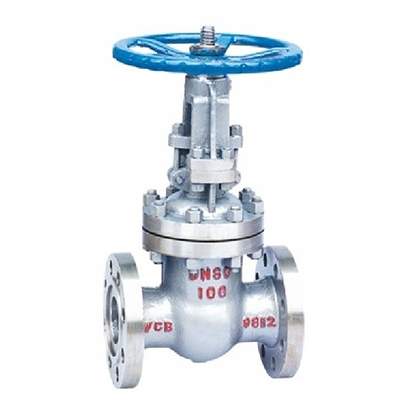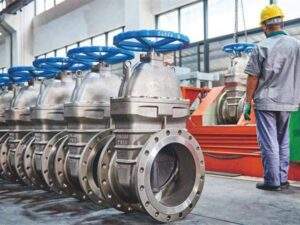Welcome to My Blog!
Before we dive into the content, if you’re interested in our products or have any questions, please feel free to visit our Contact Us page on the website. Our team is ready to assist you with inquiries, orders, or any support you may need.
Now, let’s get started on our journey together. I hope you find the content here insightful, engaging, and valuable.
Introduction
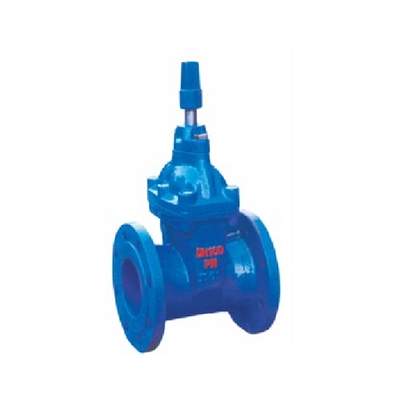
Soft seal gate valves are essential components in modern pipeline systems, particularly in sewage and wastewater applications. Unlike traditional hard seal valves, soft seal gate valves use a resilient elastomer lining to ensure a tight seal between the valve disc and seat. This design significantly reduces leakage, making them ideal for systems that require precise flow control and high reliability.
Soft seal gate valves differ from hard seal valves primarily in their sealing mechanism and durability. While hard seal valves rely on metal-to-metal contact, soft seal valves use flexible materials, such as EPDM, NBR, or PTFE, to create a watertight seal. This difference allows soft seal valves to handle low-pressure systems effectively while providing superior leak prevention and easier maintenance.
Importance of Gate Valves in Sewage and Wastewater Systems
Gate valves play a critical role in controlling the flow and pressure of fluids in sewage and wastewater pipelines. They enable operators to isolate sections of the system for maintenance, repair, or emergencies without shutting down the entire network.
Another important function is preventing backflow and leakage. Sewage systems often carry corrosive or abrasive materials, and any leakage can lead to environmental contamination and costly repairs. Soft seal gate valves minimize this risk thanks to their high sealing efficiency and durable materials.
Key Advantages of Using Soft Seal Gate Valves
Soft seal gate valves offer several advantages for wastewater applications:
- Superior Sealing Performance: The elastomeric seal ensures a leak-tight closure, even under fluctuating pressures.
- Corrosion and Wear Resistance: Soft seal gate valves are available in materials resistant to chemicals, wastewater, and abrasive solids, ensuring a longer operational life.
- Low Maintenance Requirements: The flexible sealing design reduces wear on the disc and seat, minimizing maintenance frequency and associated costs.
These advantages make soft seal gate valves a cost-effective and reliable choice for municipal and industrial sewage systems.
Common Materials and Specifications
Soft seal gate valves are manufactured using various materials suitable for harsh wastewater environments.
- Body and Disc Materials: Cast iron, ductile iron, stainless steel, and carbon steel are commonly used, with elastomer linings such as EPDM or NBR.
- Pressure Ratings and Temperature Limits: Typical soft seal gate valves can handle pressures from PN10 to PN25 and temperatures ranging from 0°C to 80°C, depending on the material.
- Standard Sizes: Soft seal gate valves are available in DN50 to DN200 and larger, accommodating a wide range of pipeline diameters in municipal and industrial applications.
Choosing the right material and size ensures optimal performance and longevity in sewage and wastewater systems.
Installation Guidelines for Sewage and Wastewater Applications
Proper installation is critical for maximizing the performance of soft seal gate valves:
- Step-by-Step Installation Process: Begin by verifying the valve size and specifications, clean the pipeline ends, install the valve with proper alignment, and ensure correct orientation according to flow direction.
- Tips for Underground or Buried Pipelines: Use protective coatings and proper bedding material to prevent external damage and corrosion.
- Common Installation Mistakes to Avoid: Avoid over-tightening bolts, neglecting alignment, or using incompatible materials that could compromise the seal.
Following these guidelines ensures a reliable installation and reduces long-term maintenance costs.
Maintenance and Troubleshooting
Regular maintenance extends the lifespan of soft seal gate valves and ensures leak-free operation:
- Regular Inspection and Cleaning: Inspect valve seals and discs for wear, clean accumulated debris, and lubricate moving parts if required.
- Leak Detection and Repair: Address minor leaks immediately by tightening gland bolts or replacing the elastomer seal.
- Extending Valve Life: Avoid operating the valve fully open or closed under high pressure conditions for prolonged periods, and perform routine inspections in high-usage pipelines.
Effective maintenance practices prevent unexpected downtime and maintain system efficiency.
Case Studies and Practical Applications
Soft seal gate valves are widely used in municipal, industrial, and stormwater management projects:
- Municipal Sewage Systems: They help isolate sections for maintenance and manage sewage flow efficiently.
- Industrial Wastewater Pipelines: Resistant to corrosive and abrasive substances, they are ideal for industrial effluent pipelines.
- Stormwater Management Systems: Soft seal gate valves prevent backflow and flooding, ensuring effective drainage during heavy rains.
These real-world applications demonstrate the versatility and reliability of soft seal gate valves.
Purchasing and Supplier Considerations
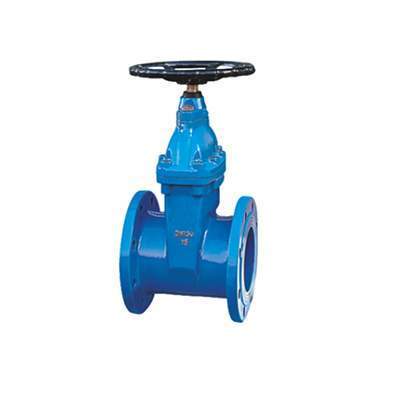
When sourcing soft seal gate valves, consider the following:
- Choosing the Right Supplier: Look for suppliers with proven quality standards, certifications, and reliable delivery schedules.
- OEM and Customization Options: Many suppliers offer custom designs to match specific pressure ratings, sizes, and materials.
- Cost Factors: Prices vary depending on size, material, and customization, but investing in high-quality valves reduces long-term maintenance costs.
Selecting the right supplier and valve specification ensures optimal performance and compliance with industry standards.
Conclusion
Soft seal gate valves are essential for modern sewage and wastewater systems due to their superior sealing, durability, and low maintenance requirements. By choosing the right materials, installing correctly, and performing regular maintenance, operators can ensure efficient, leak-free operation.
For municipal, industrial, and stormwater applications, soft seal gate valves provide a reliable solution that balances performance and cost-effectiveness. Understanding their advantages and proper usage ensures long-term success in wastewater management projects.
FAQ
What is a soft seal gate valve?
A soft seal gate valve is a valve that uses an elastomer lining between the disc and seat to create a tight seal, preventing leakage and ensuring reliable flow control.
How does a soft seal gate valve differ from a hard seal valve?
Unlike hard seal valves, soft seal valves use flexible materials such as EPDM or NBR for sealing, which improves leak prevention and allows better performance in low-pressure systems.
Where are soft seal gate valves commonly used?
They are widely used in sewage systems, wastewater pipelines, municipal water supply, industrial effluent lines, and stormwater management systems.
How should a soft seal gate valve be maintained?
Regular maintenance includes inspecting the elastomer seal, cleaning debris from the valve, checking for leaks, and lubricating moving parts if necessary.
How do I choose the right soft seal gate valve for my system?
Consider factors such as pipeline diameter (DN), pressure rating, temperature limits, material compatibility, and the specific application, such as wastewater or industrial effluent.
Need Help Choosing the Right Soft Seal Gate Valve?
If you’re unsure which soft seal gate valve is best for your sewage, wastewater, or industrial system, our experts are here to guide you. Contact us today for a personalized consultation and ensure your pipeline system operates efficiently and leak-free. Don’t wait until problems arise—get in touch now to protect your infrastructure and ensure reliable flow control!


